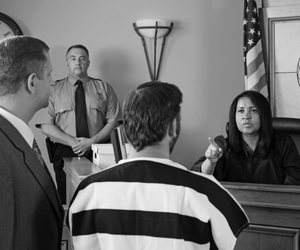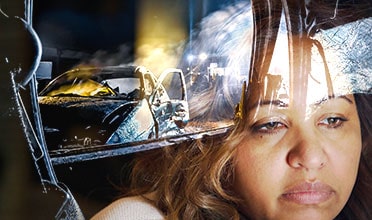When a drunk driver hit Virginia resident Susan Cleveland — just a block from her house and with three kids in her car — a feeling of distress overwhelmed her immediately. 
And that was just the start of it.
A Commonwealth attorney told Susan the three-time DWI offender who hit her would “serve serious time.”
That didn’t happen. The driver’s case was continued six times before he was sentenced for a first-time offense.
That’s when Susan called Mothers Against Drunk Driving®.
“I knew what it was like to have another person injure your child,” says Susan — whose son had been in another serious car crash just a year before, in which he had suffered a depressed skull fracture. “I told MADD I wanted to help victims and monitor these drunk driving hearings.”
She’s been at it almost 30 years now.
Volunteers come to her house every week to input data, and the judges and attorneys are used to seeing her in the courtroom observing cases.
“The police officers are glad I’m in the courtroom,” says Susan. “They also thank us for coming to sobriety checkpoints and appreciate that we care about what they are doing.”
Currently in 12 states and growing, MADD’s Court Monitoring program sends hundreds of volunteers like Susan into courtrooms to ensure drunk driving cases are prosecuted and sentenced as serious crimes.
“I’m still waiting for the courts to learn that technicalities shouldn’t reduce charges,” Susan says. “It isn’t fair to the victims when the judicial system isn’t upheld.”
The court monitors are MADD’s eyes and ears across the nation. They look for trends and inconsistencies and, when appropriate, present these findings to prosecutors and judges.
Studies show courtroom observers like Susan can positively affect outcomes, and their reporting contributes to information that can lead to higher conviction rates.
For Susan, it’s a mission.
At age 18, her son developed epilepsy from the first crash he was in. When he was 25, he died from related complications.
“My son’s experience sent me into victim advocate mode,” Susan says. “I just want to help, because I know what it’s like to have someone affect your life permanently…Families shouldn’t have to go through this kind of tragedy.”
Join Susan. Find out how you can become a volunteer court monitor for MADD.





